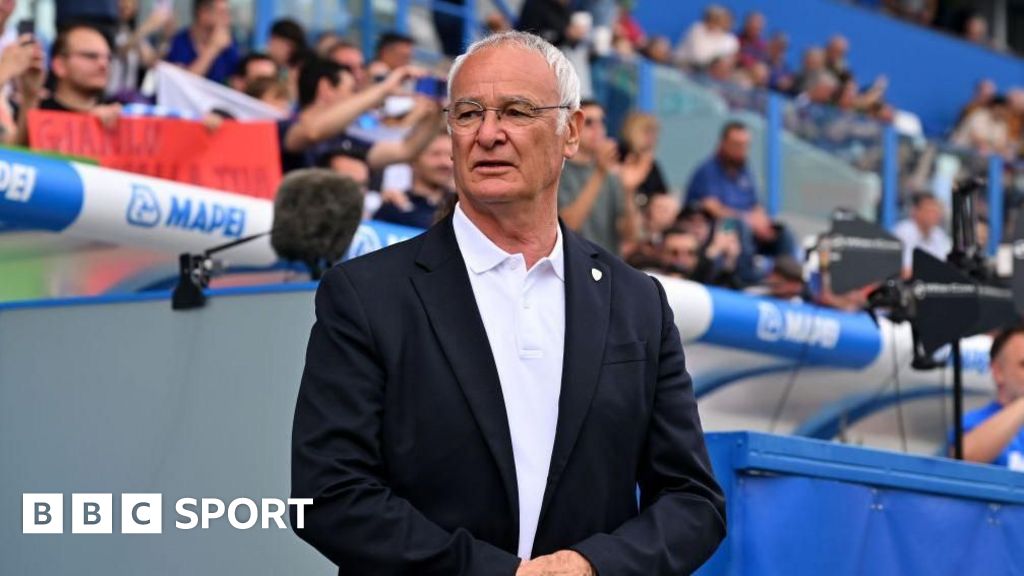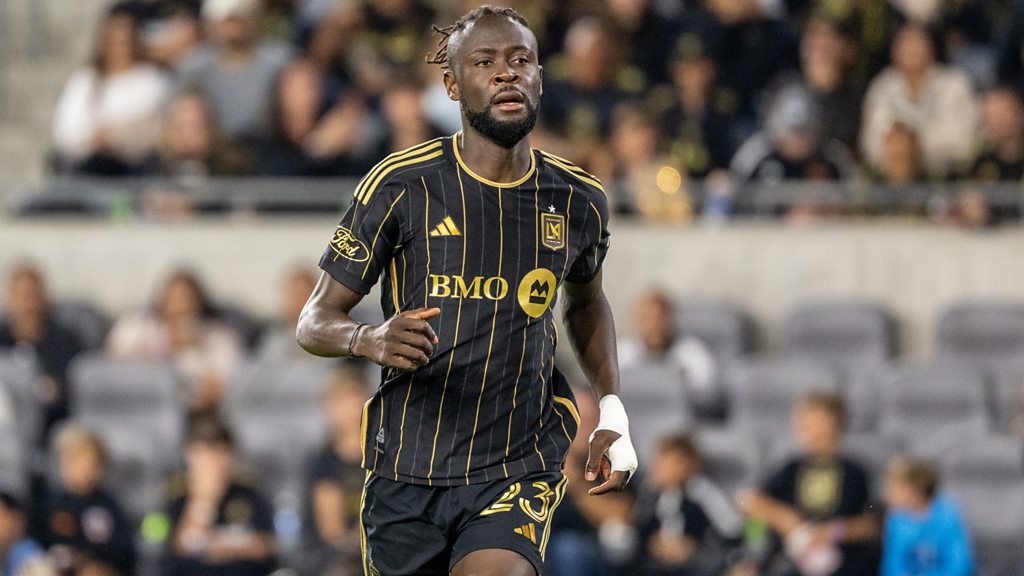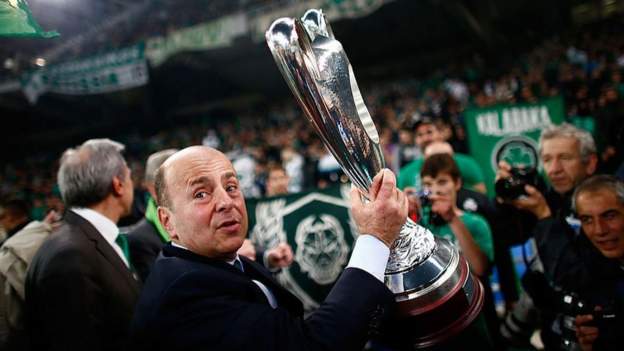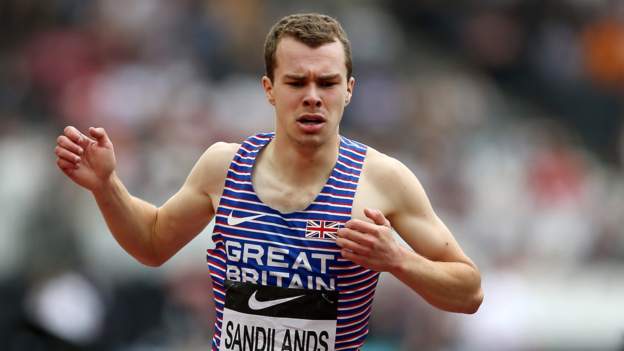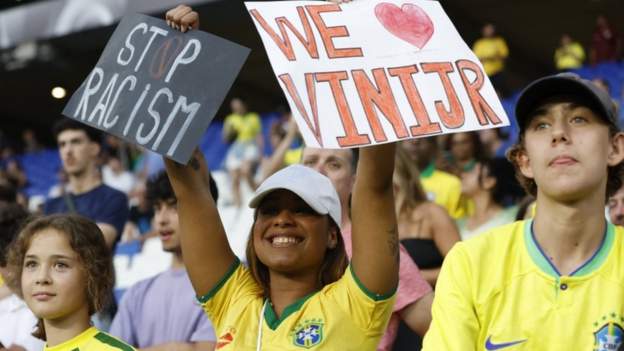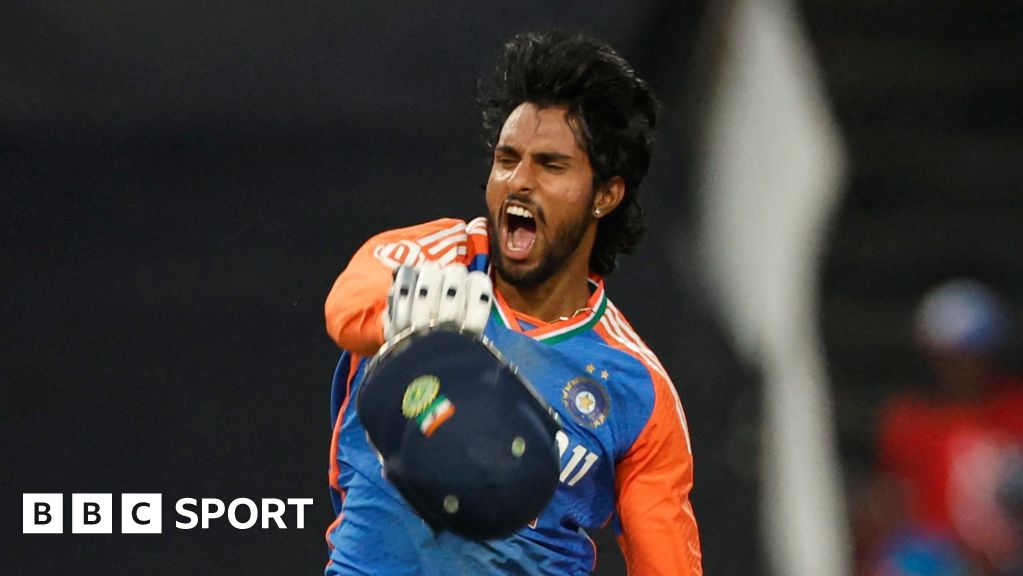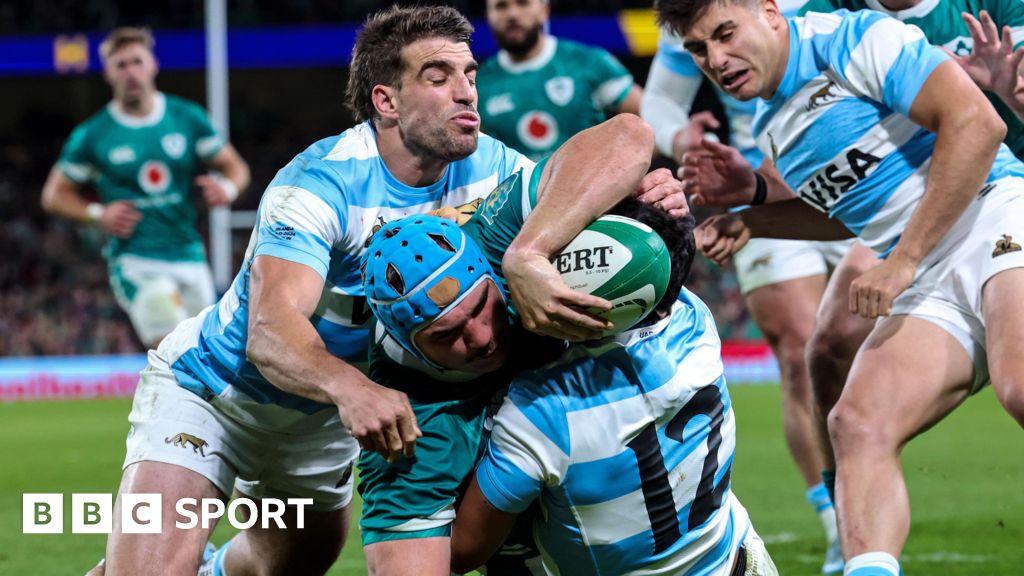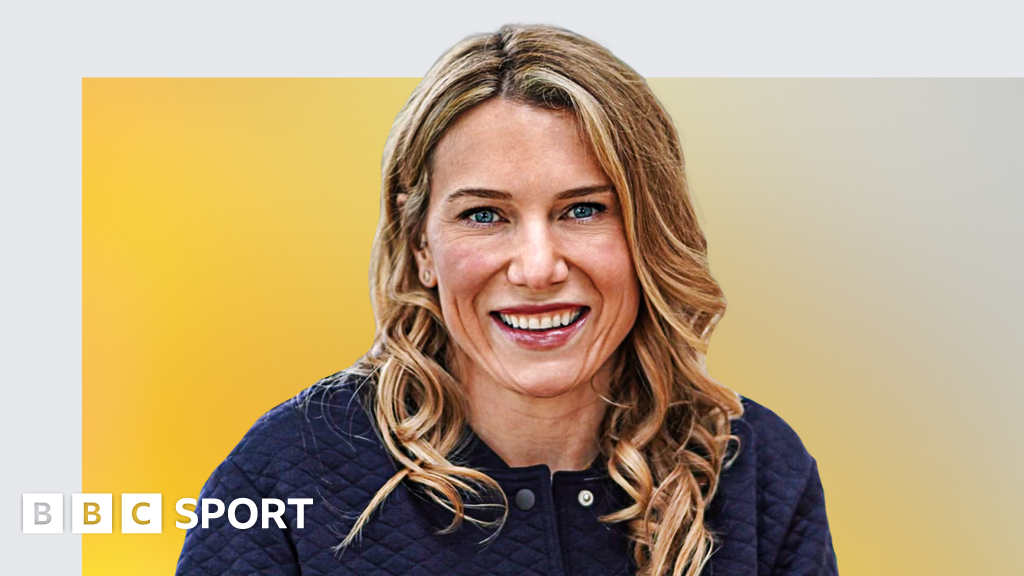Giannis Alafouzos was a Panathinaikos fan long before he became president, and probably found it easier to enjoy following his football club back then.
In just over a decade since he took charge, the 66-year-old has not only set about trying to steer the Athens club away from bankruptcy and back to former glories, but also taken Greek football to task over corruption, match-fixing and fan violence.
Now he fears a trickle-down effect the lavish-spending Saudi Pro League may have on smaller European nations too, with more money entering the pockets of the continent’s biggest clubs.
“It will damage European football further and isolate smaller counties even more from the mainstream,” Alafouzos tells BBC Sport.
“European football [competition] is the only means of Greek clubs participating in the bigger income pool that Europe has.”
Yet Greek participation among Europe’s elite is becoming increasingly rare. Twenty years ago, three clubs reached the Champions League group stage, but this will be the third successive season with none.
The Greek top flight has slipped from sixth in Uefa’s coefficient ranking in 2002 to 19th this term, and Alafouzos says the on and off-field problems stem from corruption that has crept into the game for the past 30 years.
“We lost sponsors, we lost income, because nobody was interested,” explains Alafouzos.
“There was violence because corruption leads to violence – it increases violence. It is not the only reason why we have hooliganism, but when a portion of fans feel their games are stolen from them they become violent, and this has an even more negative impact. It is a vicious circle.
“Corruption has also resulted in a lot of Greek players going abroad. If they think games are skewed here, their future is very limited.”
Tackling violence and corruption
There have been investigations into allegations of match-fixing and violent attacks on referees and match officials – one saw his bakery bombed, while in 2018 another was dragged from a car and beaten. His colleagues in the league went on strike.
Former Birmingham City and Wigan Athletic midfielder Olivier Kapo called Greek football “a total mafia” and claimed he was approached by match-fixers to get a red card during the 2013-14 season.
A 2015 report alleged key figures in the game were part of a criminal organisation involved with “fraud, attempted criminal extortion and corruption”, but six years later 28 people were acquitted of all charges.
Uefa, European football’s governing body, has tried to work with authorities to improve the situation and Alafouzos hopes things are on the up, in part thanks to the introduction of video assistant referees (VAR).
“The best means to fight corruption is through transparency,” he explains. “[With] VAR and also the digital media, people can follow things more clearly and see more things.
“Now it is becoming progressively more difficult because everybody can see what is happening.”
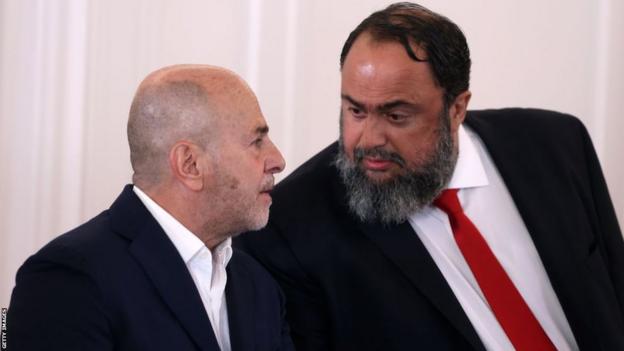
Violence remains an issue.
In August an AEK Athens supporter was stabbed to death before a Champions League qualifier against Dinamo Zagreb. It followed another fatal knife attack outside the ground of Aris FC in February 2022.
Following last month’s incident there was a government-led meeting between officials from Greece’s big four clubs – Panathinaikos, AEK, PAOK and Olympiakos – and Uefa president Aleksander Ceferin.
Prime minister Kyriakos Mitsotakis announced the closure of all bar one fan club per team and granted additional powers to police, adding he did not want to “activate the last measure” of banning clubs from European competition.
“Unless the government and the police do a better job and implement the law things will not improve,” says Alafouzos.
“Having said that, the fact it is being discussed and the president of Uefa was there and the prime minister was there, inevitably this is something positive.”
Panathinaikos on the rise?
Alafouzos does have reasons to feel positive from a Panathinaikos perspective and also senses the league is becoming more competitive.
His club clinched the Greek Cup last season and were pipped to a first league title in 13 years by AEK Athens – a rare detour from Olympiakos’ dominance, having won all but five championships this century.
Next week, all three play in the Europa League – AEK visit Brighton, Olympiakos face Freiburg in West Ham’s group and Panathinaikos host Villarreal in their first group-stage match in six years, the consolation for narrowly missing out on a return to the Champions League for the first time since 2010.
The 1971 European Cup runners-up knocked out Marseille but fell at the final play-off hurdle to Braga, with more than 61,000 present for the second leg at Athens’ Olympic Stadium.
Panathinaikos have been to the brink and back since their last league title in 2010, and were banned from European competition for three years in 2018 for failing to pay off debts.
Alafouzos came on board in 2012 to front a scheme where supporters would take majority ownership of the club, following the mass resignation of the board amid riots and financial problems.
“Since I was a fan I strongly believed a club cannot be owned by a person, that a club should be owned by its fans,” he explains.
“I did some research – we found out of 11 million Greeks, two million are Panathinaikos fans, and out of these 100,000 are hardcore and would be willing to spend in total 500 euros for their team; tickets, shirts, donations, everything.”
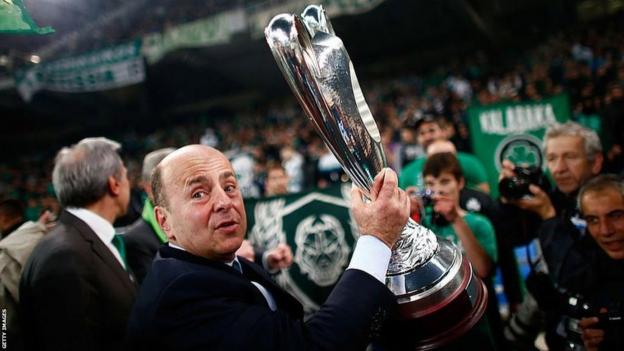
An alliance was created, giving fans the chance to contribute by becoming members, but only a fraction of the more than 60,000 anticipated committed to the scheme.
“This also coincided with very serious problems in the Greek economy which resulted in the effective bankruptcy of the country,” says Alafouzos.
“This was a terrible period, so it didn’t work and at that stage no-one else was willing to take over Panathinaikos. I had the choice of letting the team go bankrupt and starting all over again – we decided not to go this destructive route and we had a very hard fight.
“At some point I almost gave up and said I wanted to leave, hoping somebody else would take over, but unfortunately nobody did. I didn’t have the financial means for supporting the team at the time, so after 2017-18 I slowly started again paying off debt, making our finances healthy.
“Now we are in a much better position and we have been investing in the team and we hope we will progress and become self-sufficient cost-wise. Had we gone to the Champions League we would have achieved that this year.”
Things appear brighter for the 20-time Greek champions – work has begun on a new 40,000 capacity stadium, alongside significant improvements to the academy and women’s team.
So can Alafouzos start to relax?
“No, I don’t enjoy it. It is a duty,” he says. “I need a lot of success before I can actually enjoy it.
“We are trying to do that and I hope we will get there, but it is difficult to enjoy football when you are in my position and have suffered for so long.
“You need a prolonged period of good weather to be happy again.”



